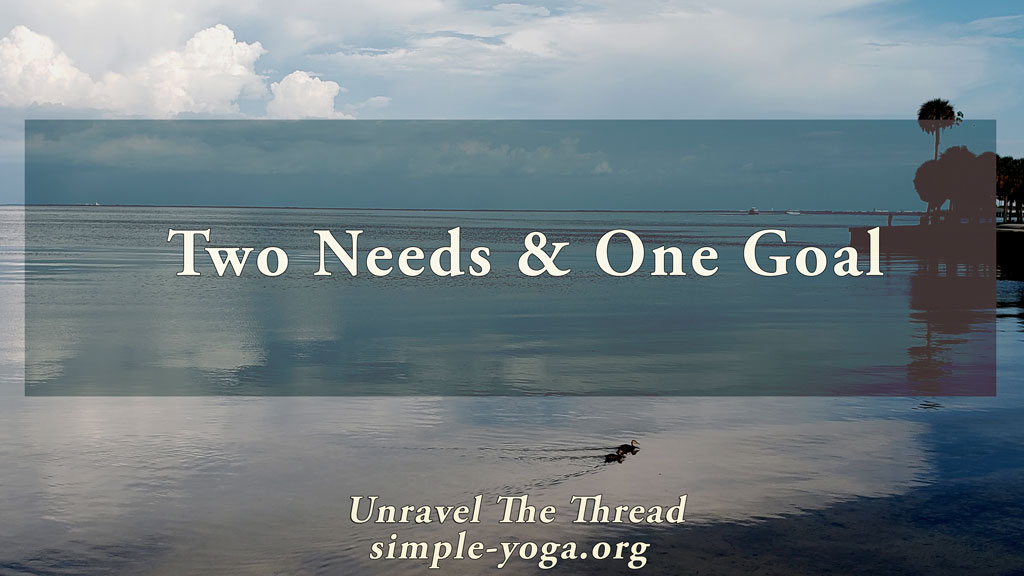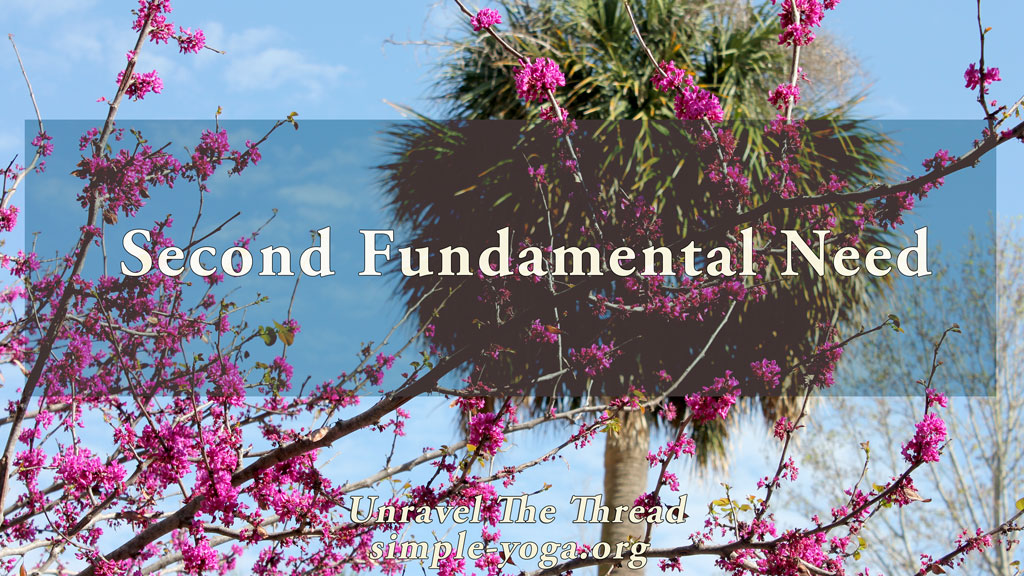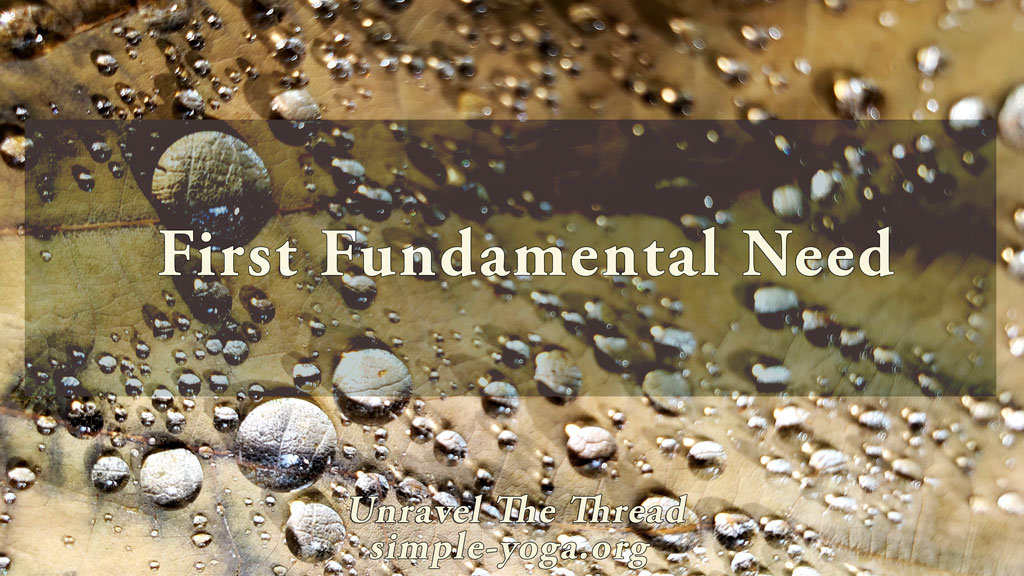
Two needs and one goal
September 18, 2023
Second Fundamental Need
October 2, 2023
Two needs and one goal
September 18, 2023
Second Fundamental Need
October 2, 2023First fundamental need

First fundamental need: Express your uniqueness
In the previous episode we talked about two fundamental needs. They are different from our basic needs of water, food, shelter, protection from the elements, etc. Let’s consider the first of these two fundamental needs, the need to express our uniqueness.
Nowadays we often hear people urging us to be authentic, and to live our best life. What does it mean to be authentic? One way of interpreting this “being authentic” is that we are being urged to act in alignment with our beliefs, preferences, and deeper values. However, when we examine our own life, it becomes evident that our beliefs, preferences, and values change as we age. It may also become obvious that our preferences also change in a shorter time span, sometimes they change according to our mood, company, weather, and context. For instance, when you talk to a person you just met, you probably interact with them in a different way from the way that you talk to your parents. Furthermore, it may be helpful to think about how each one of us plays several different roles in our lives. In some places you are a customer, in other places you may be an employee, in other instances you might be a parent, also somebody’s child or sibling. Perhaps in another context you are a student, and, in another context, you are a teacher. Recognizing all of these different facets of our life brings into question this call to being authentic as affiliating strongly with a particular belief.
Considering the call to be authentic from a different perspective, perhaps there is an underlying assumption, that there exists a self, defined by beliefs, preferences, and values; and that we need to commit to being a faithful expression of that self. This would imply that this self is elusive, and that it is sometimes possible for that self to find expression while at other times that self cannot be accessed.
Approaching this topic of the self from the perspective of the Yoga Sutra can be quite helpful. At the very beginning of the first chapter of the Yoga Sutra Patañjali defines yoga as the modulation of our ways of being, or the stilling of the turnings of the mind (1.2). When these ways of being are regulated, the witness abides in its nature (1.3). Otherwise, we tend to end up believing that we are our ways of being, our beliefs, thoughts, emotions, and habits (1.4).
I invite you to consider which of these options you are currently following in your life: Are you trying to consistently align with a specific set of beliefs and preferences? If so, where do those beliefs arise from? Have you participated consciously in creating those beliefs? What do you do when you find that one of those beliefs no longer fits your experiences?
If you believe that there is a self who is you, what defines that self? Where is that self located? Is it somewhere in your physical body? What happens to that self when you go to sleep, does it go to sleep too? Is that self, perhaps like a pilot that sits at the center of your head, behind your eyes, operating a control panel to direct your actions as you move about in the world? Do you notice some of your tendencies, perhaps like the tendency to catastrophize or to suffer at the thought of something that might happen in the future, who does the catastrophizing? Who feels the suffering? Does that self change, or does it always stay the same? Contemplating these ideas can truly be illuminating on the journey of knowing who we are and, more importantly, of distinguishing who we think we are from who we are.
At this point it may be useful to revisit wise Patañjali’s ideas. In this context we can understand sutra 1.4 as saying that one of our options is identifying ourselves with the ever-changing experiences that we have in the way of sensations, thoughts, emotions, memories, and dreams (1.5-1.9). Identifying ourselves with our experiences lead us to ride an endless emotional rollercoaster, either because we enjoy them or because we dislike them and want to avoid them. The other option presented by Patañjali is to stop misidentifying with all these transitory experiences, so that we recognize that our awareness is different from the contents of our awareness. Our awareness enables us to notice all the changing experiences, it also makes it possible for us to notice how some aspect of us reacts physically, mentally, or emotionally to whatever is happening. Could it be possible that we can remain in our awareness, witnessing the cascade of phenomena, feeling all of it but without thinking that we are what we are experiencing? Is it possible that this is what Patañjali means by “the witness/seer abiding in its own nature” or embodying presence in 1.3?
It may seem that we have taken a detour. That we started with this idea of the fundamental need we have to express our uniqueness and that we ended up thinking about authenticity, the notion of self, and abiding in awareness. Then, what does it mean to express your uniqueness? When you inquire into these ideas it becomes evident that we spend a lot of energy and time creating a personal ideology about who we are, why we are the way we are, in other words, constructing a sense of self. However, as happens with all of our mental constructions, they keep changing, just like all other phenomena. That is why our “self” is so elusive, because we keep editing it according to our experiences and modeling it according to our ever-evolving memories. If we choose not to keep feeding this personal fiction that we call our “self,” we are more likely to come into each moment from the perspective of our awareness. Then, it may be easier to witness our preferences and biases, which makes it more likely that we can regulate them so that our participation in each unique moment is wholehearted and open minded. So, instead of trying to believe that I have to find a way to create a sense of uniqueness, I simply acknowledge that I have always been a unique expression of consciousness, participating in life with less prejudice, and appreciating the uniqueness of each moment. Doing this is already quite unique and extraordinary. Is it possible that your uniqueness comes from occupying a unique space in the world and that from that space you have a unique perspective as well? Can this lead you to be a conscious presence in the world that manifests spontaneously and not according to a script predetermined by beliefs and dogmas? Could this feel more natural and in greater harmony with the ever-new flow of life?
As usual, take time to live with these questions without deciding beforehand what the answers should be. Notice what happens and keep flowing.
If you prefer, you may listen to the podcast:
This is an excerpt from the book Unravel the thread: Applying the ancient wisdom of yoga to live a happy life
If you find Simple-Yoga.org and Unravel the thread useful, consider supporting my labor with a donation, you may also donate using PayPal or Venmo. Thank you!
